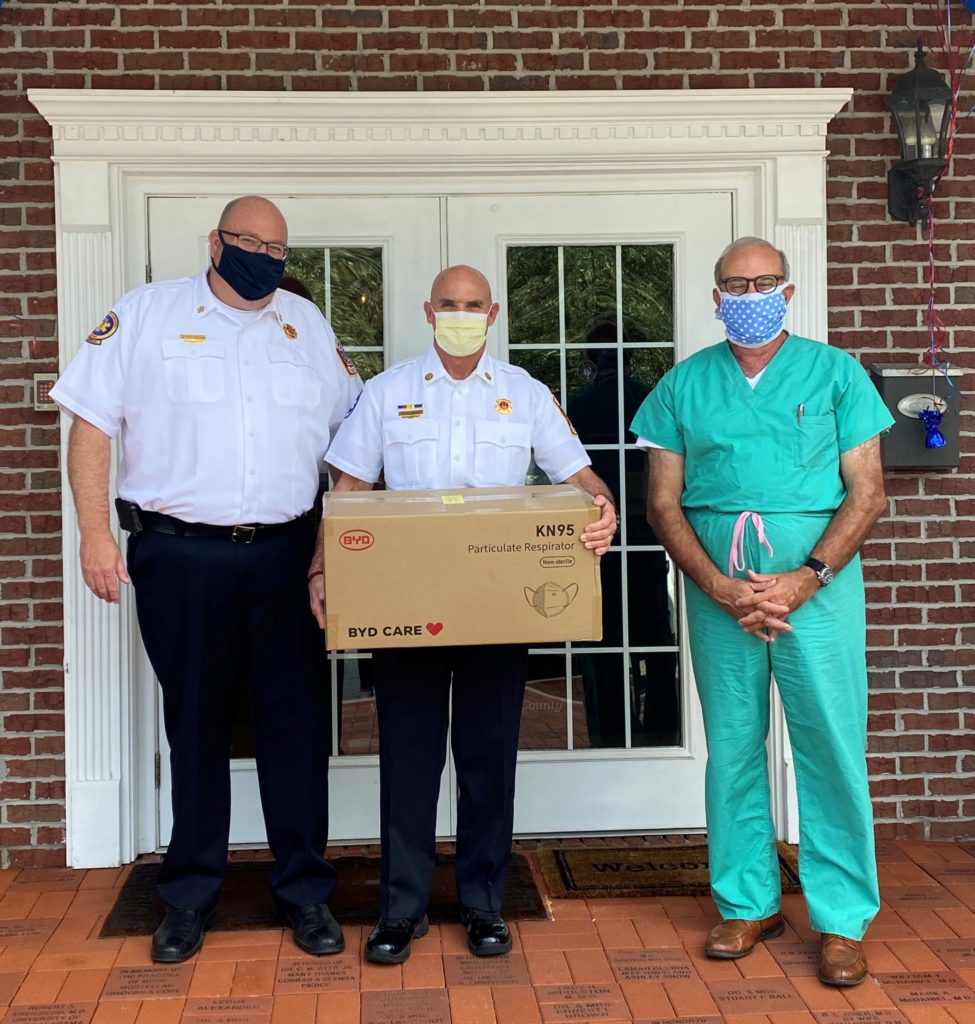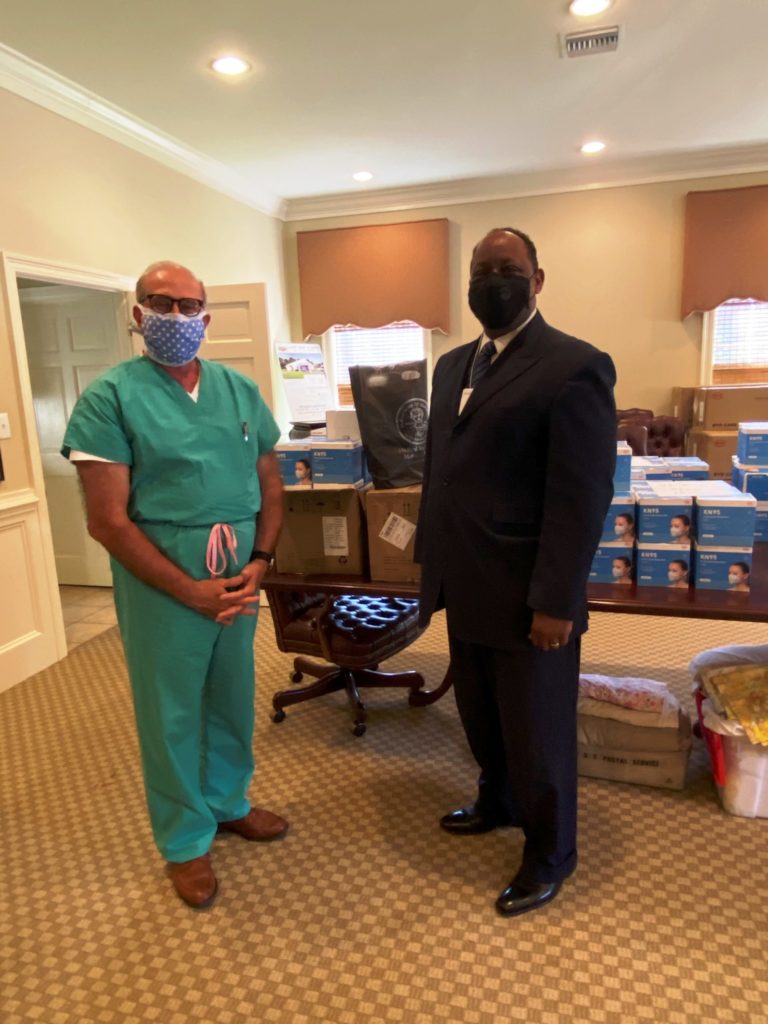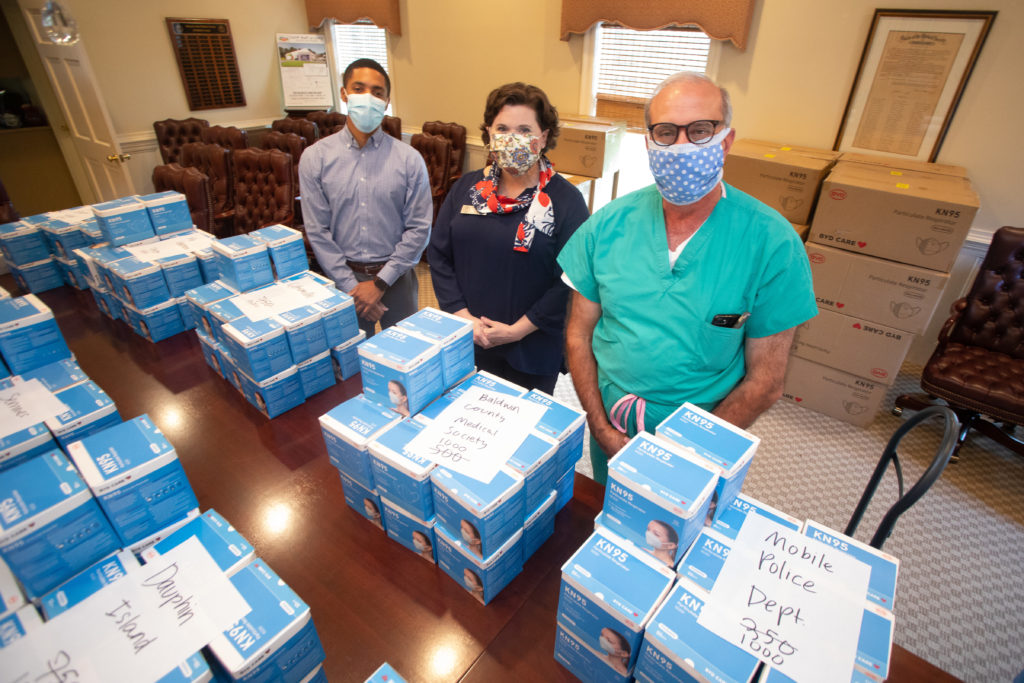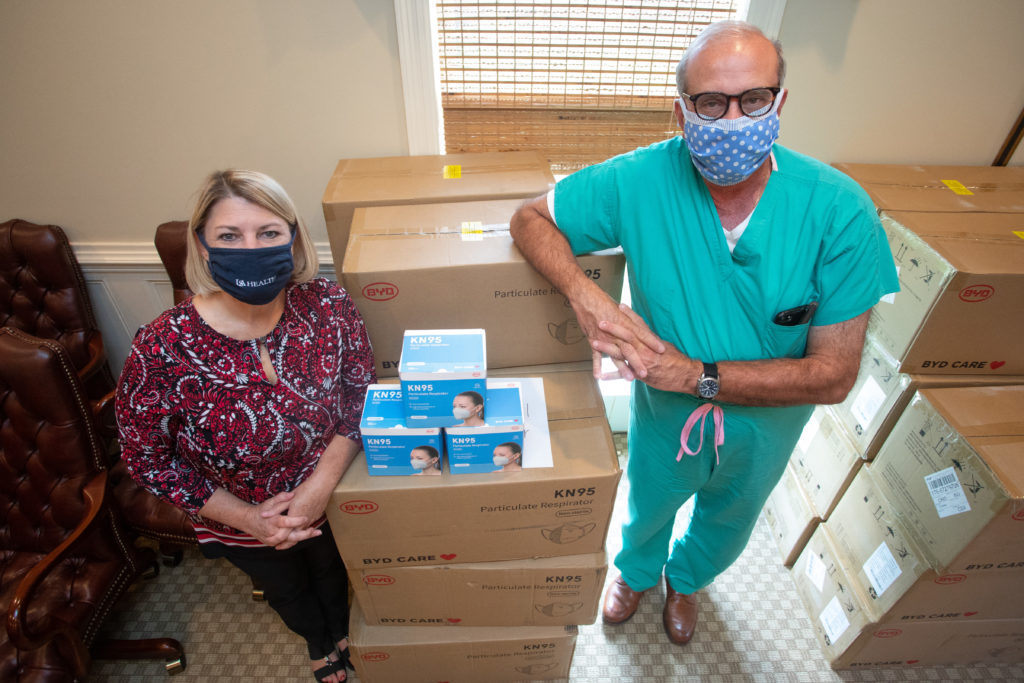Since our founding in 1984, International Medical Corps has gone to some of the most difficult and dangerous places on earth to provide lifesaving assistance. This year, with COVID-19, our commitment to reaching those most in need took us to underserved communities right here in the US—including Mobile, Alabama. Recently, we provided 100,000 medical masks to frontline health workers fighting COVID-19 in the community. The personal protective equipment (PPE) “was such a gift,” says Wendy Bedsole, Executive Director of the Medical Society of Mobile County. “It came at the perfect time.

Home to about 200,000 people, Mobile has been the second hardest-hit county in Alabama during the COVID-19 pandemic, with more than 20,300 confirmed cases to date.
“Like everyone else, we really didn’t know what we were dealing with at the beginning,” says Bedsole. “But then the intensive-care units in our hospitals started filling up with patients, and the virus spread like wildfire through our local nursing homes.”
Bedsole says that the four hospitals in the area have never had to collaborate in the way that they have during this pandemic—and that the Medical Society, the oldest physician organization in Alabama, with around 1,000 members, played a big part in bringing them together. Early in the pandemic, she asked organization members what their biggest need was. The answer she got? “We’re all going to run low on PPE.”
So Bedsole got to work coordinating a response. Through her daily calls with hospital administrators, gathering patient numbers and PPE counts, she learned pretty quickly that things were getting desperate. At one point, one of the hospitals called to say, “We’re down to our last two masks.” She turned the Medical Society’s board room into a “war room,” full of people sewing fabric masks and gowns for the hospitals and local nursing homes. Community members also started donating personal masks that they had bought for things like yard work.
“We were doing everything we could think of—but it wasn’t enough,” says Bedsole. “It felt like the bottom was about to drop out.”
Around that time, International Medical Corps called the mayor’s office in Mobile with an offer of 75,000 K95 masks, after having heard through partner organizations that the city was in need. “We were beside ourselves,” says Bedsole. The Medical Society quickly started working with different community-based groups to determine their needs—and then a giant truck arrived with four pallets. As they started going through the boxes, Bedsole and her colleagues discovered that 100,000 masks—rather than the original offer of 75,000—had been shipped.

“We were thrilled,” she says. “We went back and amended our spreadsheet to add more recipients.” Bedsole chokes up describing how far-reaching the donation has been for her county as well as some surrounding ones, including extremely underserved rural areas. “This is a first for us—having the ability to reach out to our community in a tangible fashion,” she explains. “We hadn’t had that opportunity before the pandemic, and it’s been remarkable to watch.”
Today, following a spike in cases that started after Halloween, Mobile is into its third wave of the pandemic. “The numbers are starting to creep back up after they were absolutely coming down,” says Bedsole, “and there are other trends that are so troubling,” including the pandemic’s disproportionately negative impact on Mobile’s African American community and the fact that cases are rising most rapidly among those between 25 and 45.
And the pandemic hasn’t been the only challenge faced by Bedsole and her peers. She notes the unique challenges of living on the Gulf Coast, where residents have faced “hurricane after hurricane,” and where gatherings like football games and Mardi Gras remain cherished traditions. Though the medical community knows the prevention measures that should be followed—such as wearing masks and social distancing—it has been challenging to educate a public not accustomed to following such restrictions, she says. At the same time, Bedsole explains, the governor of Alabama and local business have “really stepped up” with the mask ordinances, while the Medical Society and its partners have been working to raise awareness through TV spots about COVID prevention measures. “We are slowly seeing people’s behavior change,” she says, “which brings us a great deal of hope.”
As for Mobile’s health workers, a handful have contracted COVID-19 and most feel utterly exhausted.
“They’re basically running into a burning building and trying to pull people out—that’s how it feels to them,” says Bedsole. “I don’t want to compare it to a war, but this is as much of a frontline as they have ever felt.”
She remains effusive in her respect for the frontline health workers in her community—and how International Medical Corps’ donation is helping to protect them.

“The donation of masks truly came at a time where we weren’t able to see help anywhere else,” says Bedsole. “And now, when people call us to say they desperately need masks to protect their frontline workers, we’re able to say, ‘We’ve got them—how many do you need?’”
To learn more about International Medical Corps’ efforts to fight COVID-19 in the US and around the world, visit internationalmedicalcorps.org/covid19.
